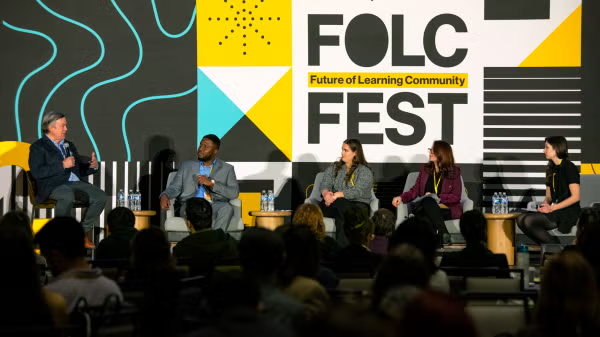Former business leader begins 'third act' with online history degree

John "Riz" Rizley. Courtesy photo.
Editor’s note: This story is part of a series of profiles of notable fall 2024 graduates.
John Stephen "Riz" Rizley had a full and rewarding career in business, serving as senior vice president and general manager of Cox Communications Southwest when he retired in 2014. He knew, however, that “business leader” didn’t describe who he truly was.
The Scottsdale, Arizona, native began as a history major in undergraduate school before going on to earn a bachelor’s degree in communications from Brigham Young University, followed by his master's degree from Thunderbird School of Global Management.
With his most recent degree, a MA in history from ASU, he is creating a “third act” in a profession he has admired all his life: historian.
“It has been exceptionally satisfying to join (historians’) ranks,” Rizley said. “(I) never shook free of my interest in the past, the people who lived before me, and how they used or abused their agency.”
After graduation, Rizley will return to a project he began 20 years ago: writing a history of the intersection of Native American, Mexican and Mormon peoples in the Southwest borderlands.
"This degree motivated me to re-outline and revisit notions I held when I began,” he said of the project. “If it ever gets published, ASU history department fingerprints will be all over it.”
The School of Historical, Philosophical and Religious Studies had the opportunity to interview Rizley about his experience at ASU.
Question: What's something you learned while at ASU (in the classroom or otherwise) that surprised you or changed your perspective?
Answer: Nothing about the past is truly settled except the stuff some people consider boring: dates, names and chronologies. My time at ASU coincided with a stint as a public history volunteer. A life lived, a pivotal event or an old building can tell a new and different story in 2024 because perspectives evolve, new data become available, fresh interpretations create new understandings. My ASU professors brought this comprehension to me.
Q: Why did you choose ASU?
A: I know the excellence of this university. In my business days, I guest-lectured at both the W.P. Carey and Cronkite schools. Several members of my family graduated from ASU. My library at home includes important histories written by ASU faculty. One of my favorite podcasters was an ASU History MA alum. I never considered any other school.
Q: Which professor taught you one of the most important lessons you've learned at ASU? What was the lesson?
A: Professor James Dupey pushed me very hard to move away from recitation of dry facts and gallop out onto the frontier of interpretation. He introduced me to the idea of creating and defending an argument. Reading a good research paper is exhilarating; organizing one is hard work!
Q: What's the best piece of advice you'd give to other students?
A: No matter how busy you are, get out and experience archives and libraries, hike historic trails, visit places that inspire your interest in history. Too many people here in Phoenix have never been to Tuzigoot or Bisbee or Canyon de Chelly. They hang a dreamcatcher on their rearview mirror and think that makes them Arizonans. Wherever you are, drink deeply from the history around you. It will bless your scholarly journey.
Q: If someone gave you $40 million to solve one problem on our planet, what would you tackle?
A: Incivility in our society is not new. Part of today's problems is rooted in how untethered many people are from our familial and societal past and the ennobling features of our present. There is an unseen world out there that comes to us through history unblinkingly told, through inspiring media, and through tolerance of — not necessarily embracing — belief in some higher power.
I would set up a 501c3 foundation whose mission is identifying and rewarding the nation's best history, humanities and religion teachers. Their excellent work should be shouted from the rooftops. Next, I would identify donors to build a larger corpus that could perpetuate this recognition, make it like a Pulitzer Prize for educators. Our society's incivility problem needs to be addressed generationally. That is why I would start with education.
Q: Is there anything else you'd like to tell us about your time as a student at ASU?
A: There have been times I wished to meet other students in the online program. They have great insights, and some have contributed from as far away as Okinawa, (Japan). The flexibility of this program made graduate study a reality for me, but I sometimes missed the real-time, give-and-take of a classroom. That being said, the personal interaction with professors was prompt and more useful than anything I experienced in my other two degrees from excellent brick-and-mortar universities.
More Sun Devil community

How 2 women who call each other 'sis' raised ASU running back Kyson Brown
The Lancaster High School graduation ceremony has just ended, and running back Kyson Brown poses for a photo with the two most important people in his life. ASU…

FOLC Fest 2025 explores Principled Innovation, leadership and learning at ASU
"Principled Innovation is about using our creativity, knowledge and resources to make decisions that ultimately benefit humanity — not just in the short term, but for generations to come."That's what…

These Sun Devils are inspiring the next generation of female athletes
This year, Women's History Month is celebrating the theme “Moving Forward Together! Women Educating and Inspiring Generations.”Women in sports inspire fans of all ages through their accomplishments…

